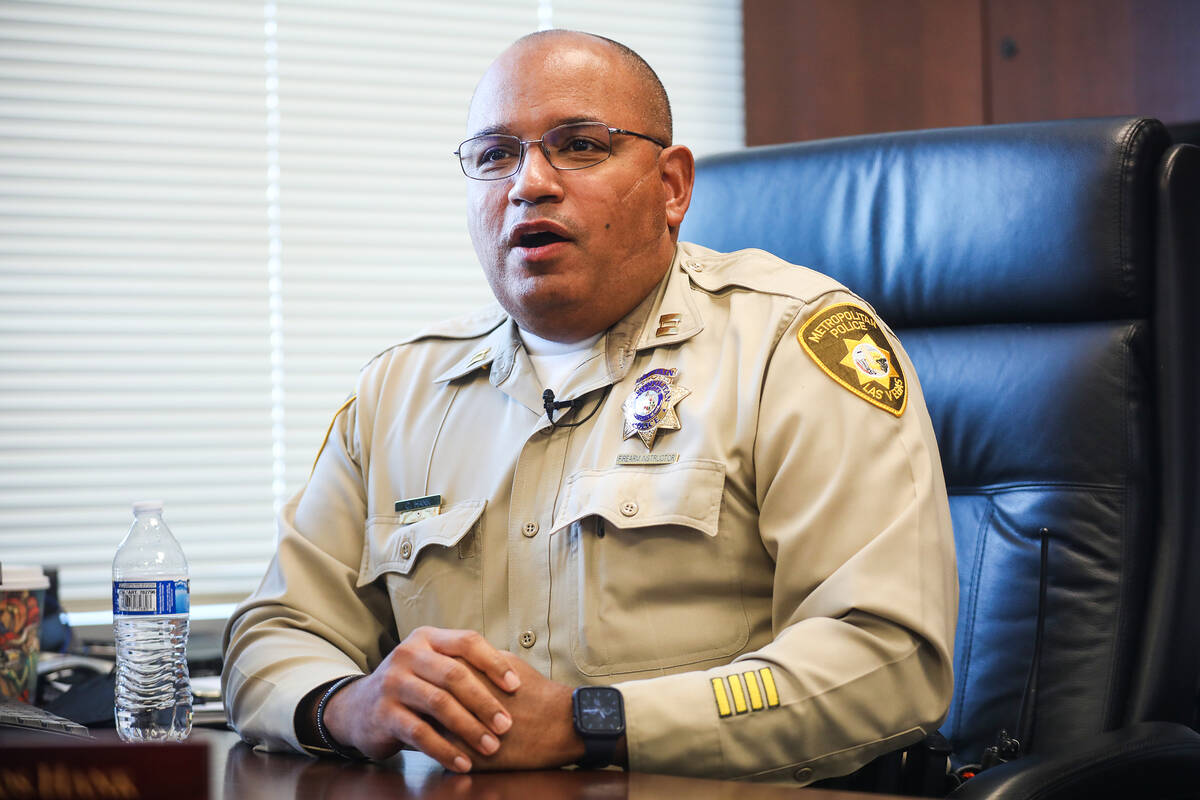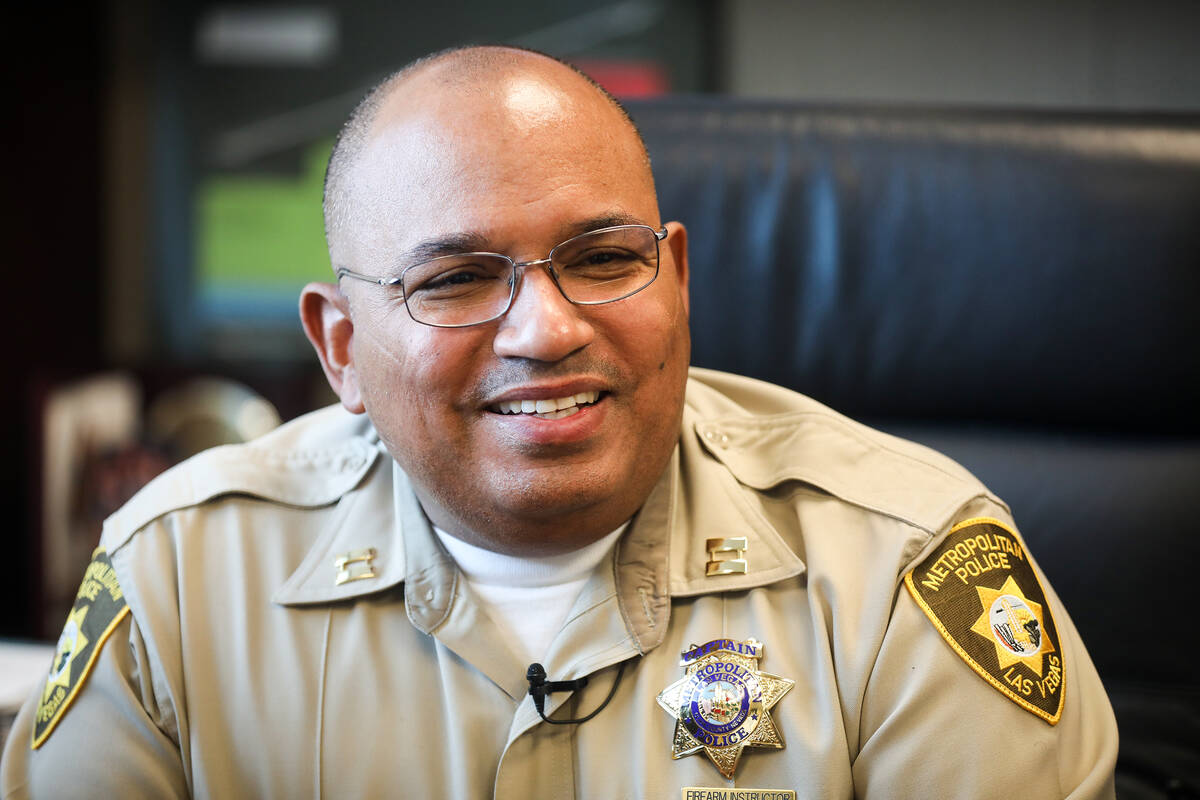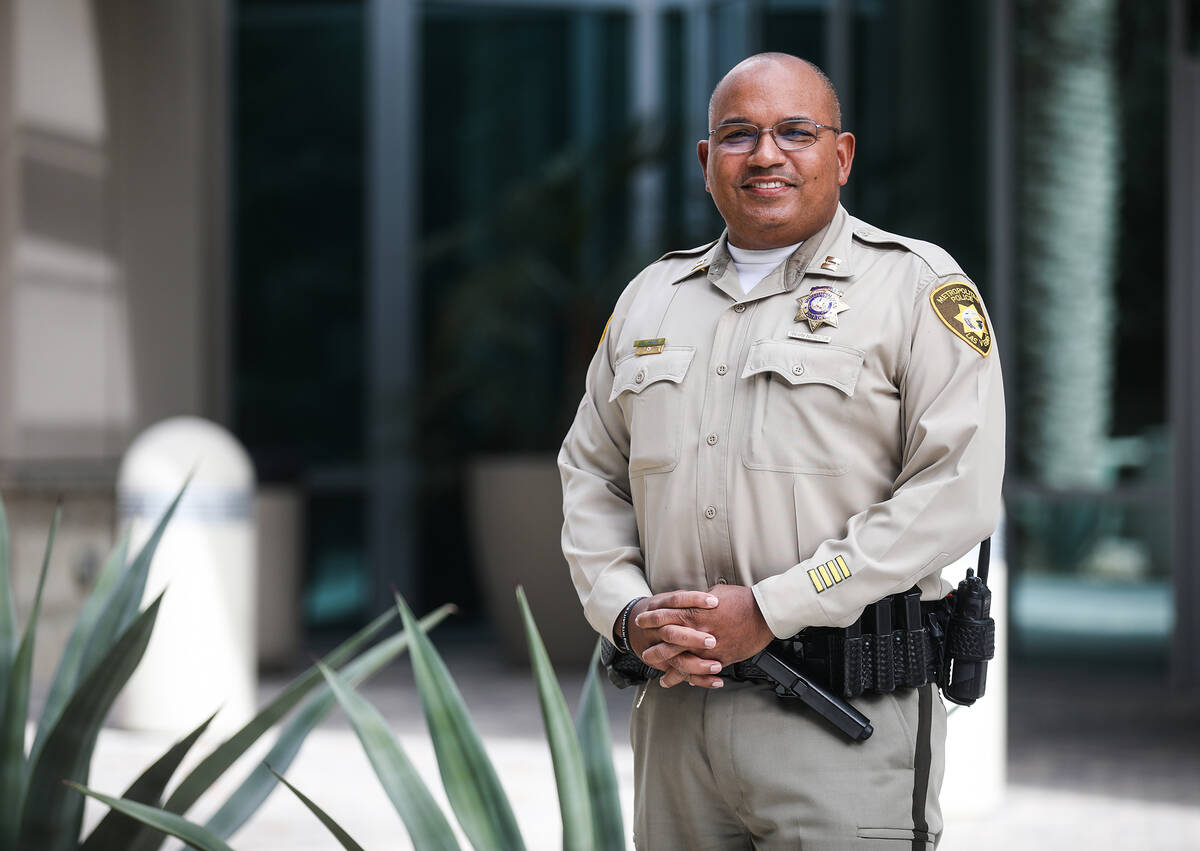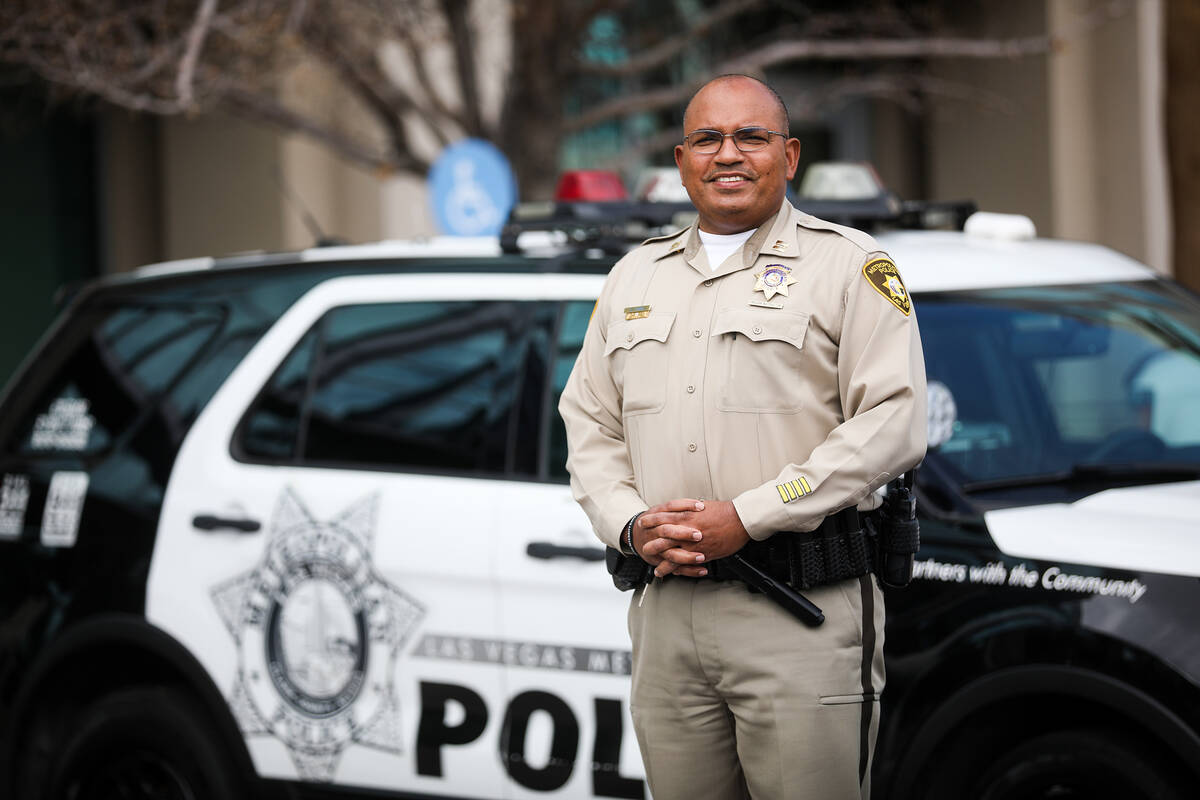Metro captain once mistrusted police but chose to be ‘part of the solution’
A Black police officer who introduced himself to his young neighbor in Lake Charles, Louisiana, never knew how his simple hello helped shape the little boy’s future.
“He was just an everyday guy that put on a uniform and went to work every day, and said ‘hi’ to a little kid across the street to him, and didn’t realize how much of an impact he had on my life,” said Las Vegas police Capt. Carlos Hank, who did not get a chance to tell officer Emmett Guillory before his death.
Hank’s choice to join the force was something he grappled with throughout his childhood.
He grew up during a time of fraught police-community relations in the South, where the color of someone’s skin could be the lone factor that landed them in trouble with the law.
Like the time when Hank — then a third grader — and his cousins were chased out of a bowling alley and followed home because “some gentleman just didn’t like us being there,” Hank, 52, said in an interview from his office at Metropolitan Police Department headquarters on the first day of Black History Month.
When his mother summoned police, they directed suspicion on the children rather than the man who had followed the kids in a pickup, even though “he didn’t have any story to refute what we were saying,” Hank said.
Or years later, when another group of officers mistreated his mother.
“I don’t want to have anything to do with the police department,” Hank remembered thinking.
Disillusioned and deflated, Hank said a talk from his mother helped straighten his path: “Those are those police officers,”she told him, reminding him how much he had loved police, officer Guillory and other good cops they had encountered along the way.
“Either you’re going to be part of the solution or you’ll be part of the problem, and you can sit there and resent the police all you want or you can get involved and make some changes,” she told her son.
Calling it his “come to Jesus” moment, Hank chose to be part of the solution.
Those who know him say Hank has a passion for community-oriented policing.
“He’s the epitome of what a true leader is, what a true human being is,” Sgt. Andre Bates said. “And we should all strive in our personal lives, but in a professional way, to just continue to selflessly give.”
Hank’s even-keeled persona was on display the day he was interviewed. Outside Metro headquarters, a flustered man approached him, describing how officers with the agency’s internal affairs bureau had ignored his complaint about an incident at Harry Reid International Airport.
Hank calmed him and told him he could contact a citizen review board or seek legal representation.
The man, who did not provide his name, appeared serene when he thanked him and walked away.
“Sometimes people just want to be heard,” Hank said, flashing a smile. “That’s all it is.”
‘A leap of faith’
Hank joined the Marine Corps when he was 17.
He initially explored the military branch’s police unit but was too young to carry a gun. Instead, he worked in aviation during his 12-year stint. He deployed to operations including Desert Storm, Desert Shield and Desert Calm.
Out of the military, living in California and looking to reinvent himself, Hank thought about joining the California Highway Patrol or other police departments.
His brother Charles Hank — who recently retired as Metro’s assistant sheriff and is currently the Maui Police Department’s deputy chief — pushed for Carlos to join him in Las Vegas.
The pay was decent, and he could provide a decent living for his family, he was told. Hank married his high school sweetheart, and they share three adult children and a trio of grandchildren.
Charles Hank first tried to reel him in by faxing him copies of his check stubs.
“It wasn’t a monetary thing for me,” Hank said, adding that he wanted to “put some roots down” after living all over the world.
Hank gave it some thought and took a “leap of faith” after a church sermon spoke to him in 2000.
He climbed the ranks from patrol officer to sergeant to lieutenant and then captain, now heading the agency’s Internal Oversight and Constitutional Policing unit, which probes critical incidents, including police use of force.
“We have to listen to both sides, and how we have to act on the facts that are presented to us, and not let our prejudgements, our prejudice influence what we do, and how we do it,” Hank said. “And so, those life experiences have helped me become who I am today, and it’s shaped how I treat people: fair, firm, consistent all the time, no matter what race or creed or color you are.”
‘Second to none’
Bates and Hank met as rookies in Metro’s police and corrections academies and have been close since. From their time patrolling together, Hank has always treated strangers with compassion and empathy, Bates said.
“Carlos goes to every extreme to make sure his family is provided for,” Bates said. “And I’ve seen no short change in that when he’s interacting with the community.”
And in times of grief and illness, Hank has not wavered, said Bates, who witnessed his friend suffer through his mother’s passing and his own battle with cancer.
“Still, till this day, the man gives 110 percent to the Las Vegas community,” he said. “The guy just selflessly gives at every turn.”
“I’m very proud to call him a friend, a very close friend,” said Bates, adding that Hank also is shy and humble. “The guy is second to none. They just don’t make them like that anymore.”
Metro’s Multicultural Advisory Councilman Mujahid Ramadan has known Hank for 15 years, describing him as a “real asset” to the force.
“As a person, he’s top of the line,” he added.
Ramadan credited Hank’s involvement with youth programs and said the captain comes from a generation of “progressive thinking” Metro leaders who emphasize community relations over force.
Being a Black officer
Nearly 10 percent of Metro employees are Black, according to the agency-provided statistics. Fifty-six percent are white, about 21 percent are Hispanic, and the rest are American Indian/Alaskan Native (0.6 percent), Pacific Islander (1.5 percent) and mixed race (5.3 percent).
To Hank, Black History Month represents “progression” but also “heartbreak.”
“You know, we have a first Black president in my lifetime, first Black vice president in our lifetime,” he said. “That’s awesome.”
But there is a long way to go, he acknowledged.
If a police killing like the murder of George Floyd at the hands of a Minneapolis police officer occurred in Las Vegas, Hank’s unit would investigate it.
In those tragedies, he said, “You’re a human first. And you see pain. You see heartbreak. The pain doesn’t go away. Or it doesn’t go away just because I wear a badge. And you see it and you feel it. It’s right there. It’s palpable. It’s tangible. And the same anger and the same frustration that the citizens feel, I felt.”
“I have a family. I have kids. I have grandkids,” he said. “And when I look at that situation, you know, I have to answer them.”
What would he tell someone like his younger self who mistrusted police at one point?
“Join the force,” he said, giving out Metro’s recruiting website, protectthecity.com. “Jump on there as quick as you can.”
Contact Ricardo Torres-Cortez at rtorres@reviewjournal.com. Follow @rickytwrites on Twitter.

























